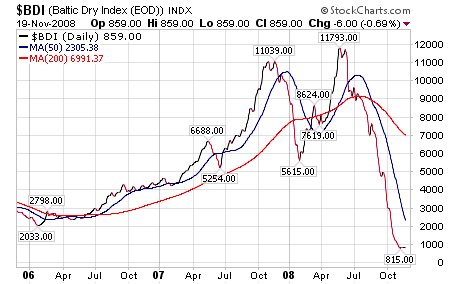A great Horseshit story from the New Yorker, please go read it here.
"In the eighteen-sixties, the quickest, or at least the most popular, way to get around New York was in a horse-drawn streetcar. The horsecars, which operated on iron rails, offered a smoother ride than the horse-drawn omnibuses they replaced. (The Herald described the experience of travelling by omnibus as a form of “modern martyrdom.”) New Yorkers made some thirty-five million horsecar trips a year at the start of the decade. By 1870, that figure had tripled.
The standard horsecar, which seated twenty, was drawn by a pair of roans and ran sixteen hours a day. Each horse could work only a four-hour shift, so operating a single car required at least eight animals. Additional horses were needed if the route ran up a grade, or if the weather was hot. Horses were also employed to transport goods; as the amount of freight arriving at the city’s railroad terminals increased, so, too, did the number of horses needed to distribute it along local streets. By 1880, there were at least a hundred and fifty thousand horses living in New York, and probably a great many more. Each one relieved itself of, on average, twenty-two pounds of manure a day, meaning that the city’s production of horse droppings ran to at least forty-five thousand tons a month. George Waring, Jr., who served as the city’s Street Cleaning Commissioner, described Manhattan as stinking “with the emanations of putrefying organic matter.” Another observer wrote that the streets were “literally carpeted with a warm, brown matting . . . smelling to heaven.” In the early part of the century, farmers in the surrounding counties had been happy to pay for the city’s manure, which could be converted into rich fertilizer, but by the later part the market was so glutted that stable owners had to pay to have the stuff removed, with the result that it often accumulated in vacant lots, providing breeding grounds for flies.
The problem just kept piling up until, in the eighteen-nineties, it seemed virtually insurmountable. One commentator predicted that by 1930 horse manure would reach the level of Manhattan’s third-story windows. New York’s troubles were not New York’s alone; in 1894, the Times of London forecast that by the middle of the following century every street in the city would be buried under nine feet of manure. It was understood that flies were a transmission vector for disease, and a public-health crisis seemed imminent. When the world’s first international urban-planning conference was held, in 1898, it was dominated by discussion of the manure situation. Unable to agree upon any solutions—or to imagine cities without horses—the delegates broke up the meeting, which had been scheduled to last a week and a half, after just three days.
Then, almost overnight, the crisis passed. This was not brought about by regulation or by government policy. Instead, it was technological innovation that made the difference. With electrification and the development of the internal-combustion engine, there were new ways to move people and goods around. By 1912, autos in New York outnumbered horses, and in 1917 the city’s last horse-drawn streetcar made its final run. All the anxieties about a metropolis inundated by ordure had been misplaced."
While on the subject of horses, here is this
tidbit from Wiki:
"An epizootic outbreak of equine influenza during 1872 in North America became known as "The Great Epizootic of 1872". The outbreak is known as the "most destructive recorded episode of equine influenza in history"[3]. The impact of the outbreak is marked as one of the major contributors to the Panic of 1873 in the United States.
The first cases of disease in pasture horses were noticed in the townships of Scarborough, York and Markham in Ontario, Canada. By October 1, 1872, the first case was seen in Toronto. It took only 3 days before all the horses responsible for street car transportation and major livery-stables were affected. By the middle of the month, Montreal, Detroit, and most of the Dominion of Canada and New England were reporting cases.[2]
By the start of November Ohio, Massachusetts, and South Carolina were reporting cases. The contagion reached Florida and Louisiana by the end of November and was reported in Cuba on December 7. The height of the plague was recognized as December 14, which saw the government of Mexico having to supply disease-free horses to the stricken United States.[2]
The number of infected horses approached 100%, and mortality rates ranged between 1% and 10%. Many horses were unable to stand in their stalls, and those which could stand coughed violently and were too weak to pull loads.[4]
The street railway industry ground to a halt. Every aspect of American transportation was affected. Locomotives came to a halt as coal could not be delivered to power them, while fires in many major cities raged unchecked. One fire in Boston destroyed over 700 buildings. Even the United States Army Cavalry was reduced to fighting on foot against the Apaches, who likewise found their mounts too sick to do battle. The outbreak forced men to pull wagons by hand, while trains and ships full of cargo sat unloaded, tram cars stood idle and deliveries of basic community essentials were no longer being made. The Long Riders' Guild Academic Foundation founder CuChullaine O'Reilly said "the Great Epizootic was the worst equestrian catastrophe in the history of the United States - and perhaps the world"








